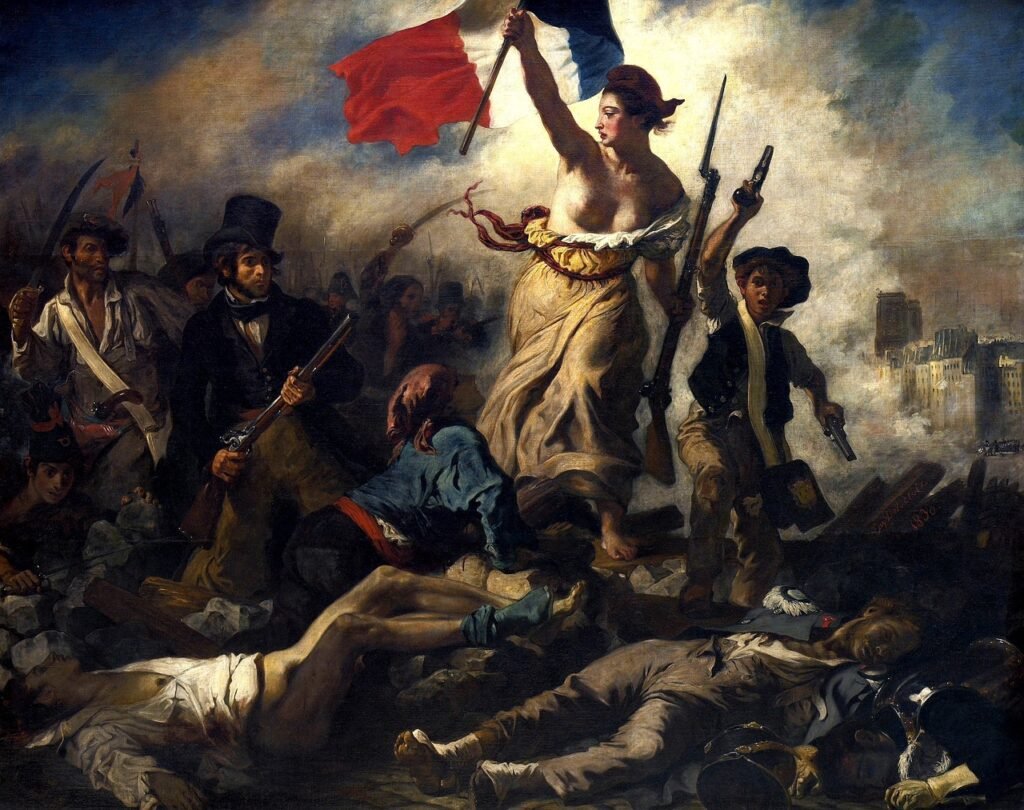he French Revolution was a period of significant social and political upheaval in France from 1789 to 1799. Here are some key facts about the French Revolution:
- Causes: The French Revolution was fueled by a combination of long-term social, economic, and political factors. These included widespread discontent with the monarchy’s absolute power, financial crisis due to excessive spending and taxation, and Enlightenment ideals promoting liberty, equality, and fraternity.
- Estates-General: The Estates-General, a representative assembly representing the clergy, nobility, and commoners, was convened in May 1789 to address France’s financial crisis. Disagreements over voting procedures led to the Third Estate (commoners) forming the National Assembly, signalling the start of the Revolution.
- Storming of the Bastille: On July 14, 1789, Parisian revolutionaries stormed the Bastille, a symbol of royal authority, to seize weapons and ammunition. The event became a symbol of popular uprising against the monarchy and is celebrated as Bastille Day, a national holiday in France.
- Reign of Terror: The Reign of Terror, led by the radical Jacobins and their leader Maximilien Robespierre, was a period of mass executions and political purges from 1793 to 1794. It aimed to eliminate counter-revolutionary elements and consolidate power, resulting in thousands of deaths, including that of Robespierre himself.
- Execution of King Louis XVI: King Louis XVI and his queen, Marie Antoinette, were executed by guillotine in 1793, marking the end of the monarchy and the establishment of the French Republic.
- Napoleon Bonaparte: The French Revolution paved the way for Napoleon Bonaparte, a military general, to rise to power. Napoleon’s coup d’état in 1799 led to the establishment of the Consulate and later the Napoleonic Empire, which dominated Europe until his defeat in 1815.
- Legacy: The French Revolution had a profound impact on modern history, inspiring subsequent revolutions and political movements around the world. It contributed to the rise of nationalism, the spread of democratic ideals, and the abolition of feudalism and absolute monarchy in Europe.
- Declaration of the Rights of Man and of the Citizen: The Declaration of the Rights of Man and of the Citizen, adopted in 1789, proclaimed the principles of liberty, equality, and fraternity as the foundation of the new French Republic. It remains a cornerstone of modern democratic thought.
- Civil Constitution of the Clergy: The Civil Constitution of the Clergy, passed in 1790, aimed to reform the Catholic Church in France by subjecting it to state control. It led to divisions within the clergy and opposition from the Pope, exacerbating religious tensions in France.
- Women’s March on Versailles: In October 1789, Parisian women marched to Versailles to demand bread and protest against food shortages. The event forced King Louis XVI to move the royal court back to Paris and marked a turning point in the Revolution’s radicalization.
These are just a few key facts about the French Revolution, a pivotal moment in world history that reshaped the political landscape of Europe and beyond.
